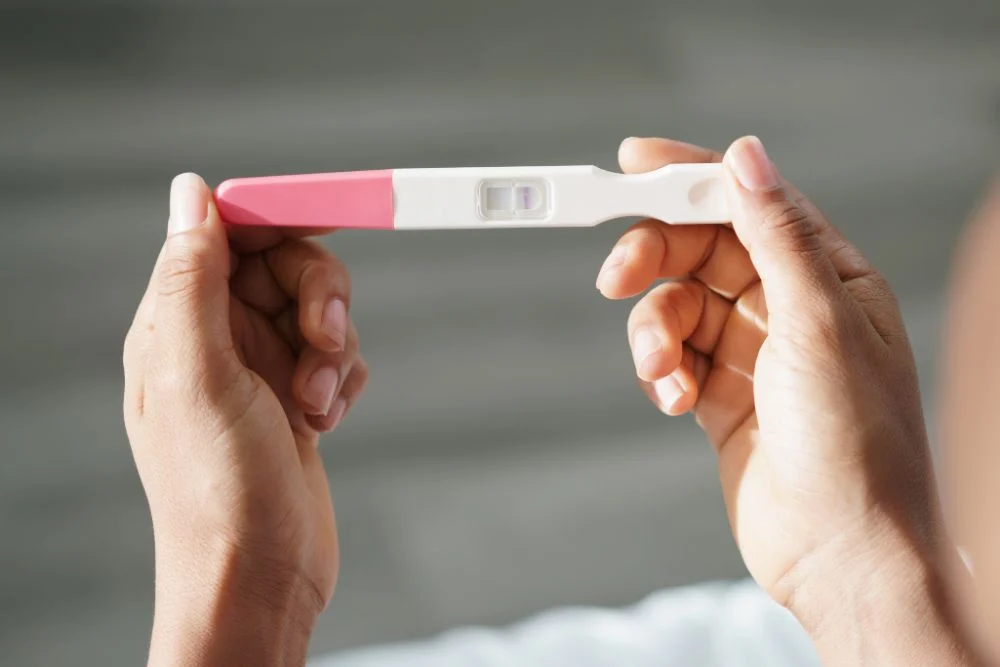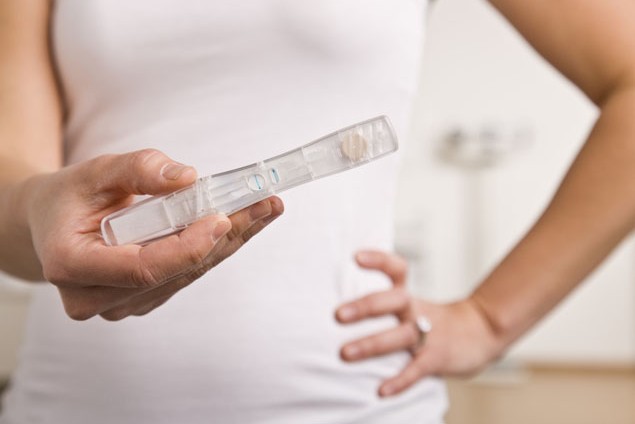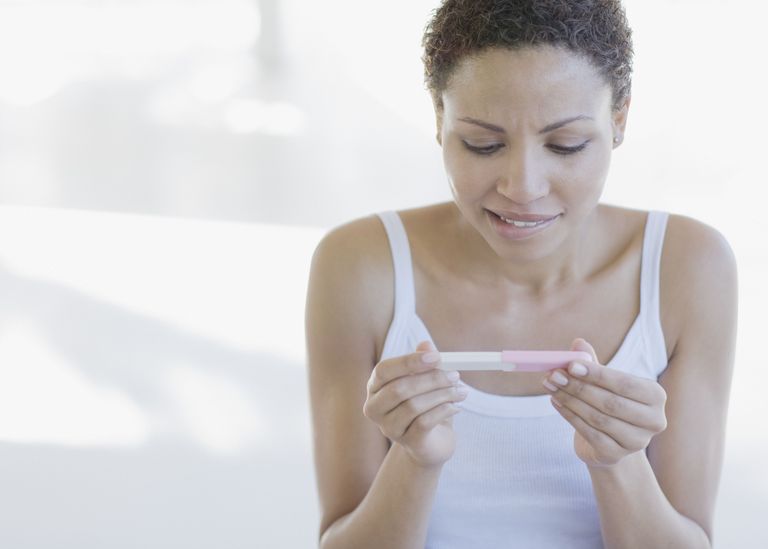It’s a confusing situation many women face – you took a pregnancy test that came back negative, yet your period still hasn’t arrived. While a missed period often raises fears of potential pregnancy, a negative test result compounds the mystery. In this post, we will explore the various possible explanations for why you’re experiencing a late or missed period despite not being pregnant.

From hormonal imbalances and medical conditions to the chances of inaccurate test results, we’ll look into the reasons your cycle may be thrown off when pregnancy isn’t the underlying cause. Getting to the bottom of this can provide reassurance.
Contents
- 1 Common Reasons for Negative Pregnancy Test But No Period
- 2 How Accurate Are Pregnancy Tests?
- 3 What Can Cause a False Negative Pregnancy Test?
- 4 Frequently Asked Questions
- 4.1 What should I do after a negative pregnancy test result?
- 4.2 Can a negative result on a pregnancy test be wrong if I missed my period?
- 4.3 What are some signs of a possible hidden pregnancy?
- 4.4 How long can a period be late without being pregnant?
- 4.5 Is it possible to be 3 weeks pregnant and get a negative test result?
Common Reasons for Negative Pregnancy Test But No Period
Experiencing a negative pregnancy test when your period is late can be confusing and may lead to concerns about your health. There are several reasons why this might happen, and understanding these can provide reassurance and guide the next steps.
1. Hormonal Imbalances
Hormonal imbalances can cause irregularities in your menstrual cycle, leading to a situation where you might have a negative pregnancy test but no period. These imbalances can be due to various factors, including stress, thyroid issues, or conditions like Polycystic Ovary Syndrome (PCOS). Hormones such as estrogen and progesterone play crucial roles in regulating your menstrual cycle. When their levels are not in balance, it can disrupt your cycle, causing delays or missed periods.
2. Stress
Stress is a significant factor that can impact your menstrual cycle, leading to delayed or missed periods and a negative pregnancy test. The body’s response to stress involves the release of cortisol, a hormone that can interfere with the regular production of estrogen and progesterone. This disruption can cause your menstrual cycle to become irregular. High levels of stress over a prolonged period can have a more pronounced effect on your cycle’s regularity.
3. Significant Weight Changes
Significant weight changes, either loss or gain, can impact your menstrual cycle, leading to a scenario where you might experience a negative pregnancy test but no period. Extreme weight loss or gain can disrupt the hormonal balance necessary for regular ovulation and menstruation. Body fat plays a crucial role in estrogen production; too little or too much body fat can lead to hormonal imbalances that affect your cycle.
4. Polycystic Ovary Syndrome (PCOS)
Polycystic Ovary Syndrome (PCOS) is a common condition that affects how a woman’s ovaries work, which can lead to irregular menstrual cycles, making it possible to have a negative pregnancy test but no period. PCOS is characterized by high levels of male hormones (androgens), irregular ovulation, and cysts on the ovaries. Women with PCOS may experience fewer periods due to irregular ovulation or lack of ovulation (anovulation), contributing to fertility issues.

5. False Negative Pregnancy Test
A false negative pregnancy test can occur for several reasons, such as testing too early, not following the test instructions correctly, or using an expired or defective test. Pregnancy tests detect the presence of the hormone hCG, which may not be at a detectable level in the early stages of pregnancy. If you suspect you’re pregnant despite a negative test result and have missed your period, it’s advisable to retake the test a few days later or consult a healthcare provider for a more accurate test.
6. Thyroid Disorders
Thyroid disorders, such as hypothyroidism or hyperthyroidism, can cause menstrual irregularities, including missed periods, leading to a negative pregnancy test result. The thyroid gland produces hormones that regulate the body’s metabolism, which can affect menstrual cycles if not functioning correctly. Thyroid disorders can disrupt the balance of reproductive hormones, leading to delayed ovulation or missed periods.
7. Premature Ovarian Failure
Premature ovarian failure, also known as primary ovarian insufficiency, is a condition where the ovaries stop functioning normally before the age of 40. This condition can lead to irregular or missed periods and, consequently, negative pregnancy tests when periods are absent. Premature ovarian failure can be caused by genetic factors, autoimmune diseases, or environmental factors, and it can significantly impact fertility and hormone levels.
How Accurate Are Pregnancy Tests?
When it comes to pregnancy tests, accuracy is essential for reliable results. Here’s what you need to know:

- Blood Pregnancy Tests: These are more accurate than urine tests and can provide a clearer picture of your pregnancy status.
- False Negative Results: It’s possible to be pregnant and still get a negative result, especially with home pregnancy tests. Up to 5% of home tests may yield a false negative, leading to confusion and uncertainty.
- High Levels of hCG: In some cases, extremely high levels of the pregnancy hormone hCG can interfere with test results, causing a false negative. This can occur if you are further along in your pregnancy or if you are expecting twins or triplets.
- Test Sensitivity: Different tests have varying sensitivity levels. Some tests can detect lower levels of hCG in urine, offering more accurate results early on in pregnancy.
- Test Accuracy: While many home pregnancy tests claim to be 99% accurate, results can vary based on individual circumstances. If you receive a negative result but still suspect pregnancy, it’s advisable to retest after a week or consult your healthcare provider for further evaluation.
What Can Cause a False Negative Pregnancy Test?
There are a few reasons you might get a negative pregnancy test even if you’re pregnant, also known as a false negative. Here are the most common ones:
-
Testing too early: This is the most likely culprit. Home pregnancy tests detect a hormone called hCG, which ramps up in your body after conception. But it takes time for those levels to get high enough. If you test too soon after ovulation, there might not be enough hCG for the test to pick up. Doctors typically recommend waiting to test until after a missed period for the most accurate results.
-
Diluted urine: If you drink a lot of fluids before taking the test, your urine might be too diluted. This can make it harder for the test to detect hCG. To increase your chances of an accurate result, try taking the test first thing in the morning when your urine is naturally more concentrated.
-
User error: Read the instructions carefully and follow them exactly. Mistakes like not holding the test strip in the urine stream for the right amount of time can lead to a false negative.
-
Less common causes: In rare cases, certain medical conditions can affect pregnancy test results. These include problems with the placenta, a condition called a molar pregnancy, and some fertility treatments.
If you have a negative test but you still think you might be pregnant, talk to your doctor. They can do a blood test for hCG, which can be more sensitive than a home pregnancy test, especially early in pregnancy.
Frequently Asked Questions
What should I do after a negative pregnancy test result?
After a negative pregnancy test, consider retesting after a few days using the first-morning urine for higher accuracy. Talk to a healthcare provider for guidance. The timing of the test matters, especially if taken too early. Factors like diluted urine or incorrect usage can affect results. If still unsure, seek professional advice.
Can a negative result on a pregnancy test be wrong if I missed my period?
Yes, a negative pregnancy test result can be incorrect if taken too early or if the test isn’t sensitive enough. It’s recommended to wait and retest after a week or consult a healthcare provider if pregnancy is suspected despite the negative result.
Signs of a hidden pregnancy can include slight weight gain, fatigue, constipation, spotting without periods, swollen and tender breasts, bloating, frequent urination, and cramping. If experiencing any of these symptoms, it’s wise to seek medical advice.
How long can a period be late without being pregnant?
Typically, a late period is considered after 7 days past the expected due date. A menstrual cycle can vary, lasting between 24 to 38 days. If your period is over 6 weeks late, it’s considered a missed period, and consulting a healthcare provider is advisable.
Is it possible to be 3 weeks pregnant and get a negative test result?
Yes, it is possible to be 3 weeks pregnant and still get a negative test result, especially if testing before the due date of the period. False-negative results can occur when testing too early. Waiting until after a missed period or consulting a healthcare provider is recommended for accurate results.
I am a medical student with experience and interest in Women’s health and well-being.